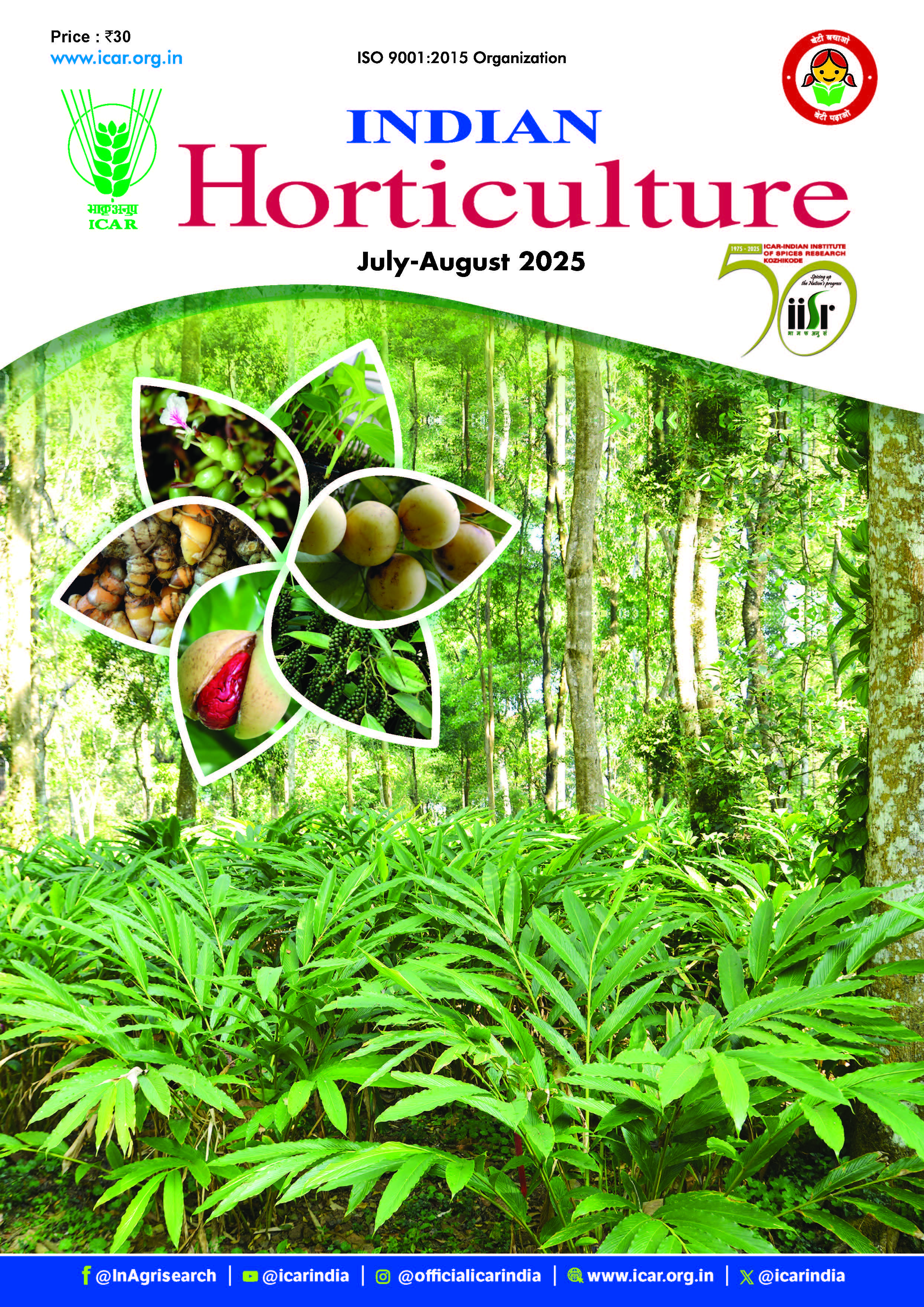Adulteration in spices: Quality concerns and economic impact
57 / 62
Abstract
Spice adulteration is a pervasive issue threatening food safety, trade integrity, and public health globally. This paper explores the types of adulterants, physical, chemical, biological, and microbiological, commonly found in spices, and their detection methods ranging from simple field tests to advanced AI-driven techniques. It examines the economic consequences of adulteration, including export rejections, reputational damage, and increased compliance costs. The role of international regulatory frameworks, quality standards, and block chain based traceability systems in mitigating adulteration is critically analyzed. The study underscores the urgent need for investment in quality infrastructure and international cooperation to safeguard consumer trust and ensure sustainable spice trade.
Downloads
Downloads
Submitted
Published
Issue
Section
License
Copyright (c) 2025 Indian Horticulture

This work is licensed under a Creative Commons Attribution-NonCommercial-ShareAlike 4.0 International License.
Complete copyright vests with the Indian Council of Agricultural Research, who will have the right to enter into an agreement with any organization in India or abroad engaged in reprography, photocopying, storage and dissemination of information contained in it, and neither author nor his/her legal heirs will have any claims on royalty.
